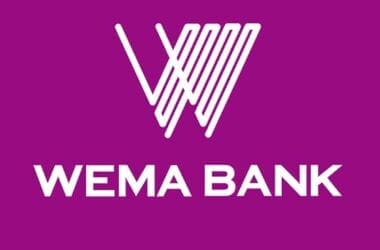We’ve somehow succeeded in our minds (because it’s nothing formal) in establishing the difference between Cab and Taxi.
A little confused on what we may be referring to?
We’ll be gracious enough to explain, there’s no fear.

When you say cab, you’re probably referring to a clean ride not painted in the stipulated state government colours and air-conditioned OR Transportation Network Companies (TNCs).
A taxi will be one painted in stipulated state government colours and probably not air-conditioned.
“Texy” is the one that you’ll flag down and price with most times an obstinate Baba and the back-seat window winders or crank knobs not working.
Then there’s Uber or Taxify for people who want to be super specific so you don’t get their mode of transportation twisted.

Wait a minute. Is there really a difference? Even the association says “Taxi Drivers and Cab Operators Association”.
Be the judge as we reminisce on some Taxi services and the game changing effect of technology whilst exploring insightful comparison on this episode of “Tech As We Know It”.
Bargaining power
Many everyday Lagosians will admit that the most decent and convenient means of road public transportation to a ‘dignified place’ especially dressed accordingly is by Taxis.
Convenient will mean that you do not want to go through the hustle of the danfos or molues and of course have some money to spare.
The ability to drive a hard bargain and perhaps becoming a master haggler therefore is a must have skill as you are naturally predisposed to being cheated by the drivers. As such, Lagos taxi drivers have contributed immensely in honing a lot of peoples’ bargaining skills.
The class range
Hailing taxis on the road are most times significantly marked by long, anxious waits and endless haggles.
Just like markets in Lagos, a great disservice will be speaking proper English or with a foreign accent to drivers as that automatically sets off a casino slot machine in their heads, suggesting healthy financial prowess and the odds they stood at winning. As such, a certain price range is attached to you such that even when you beat it down, it is still profit for them.
Thus, the safer mode is to speak pidgin or the applicable native dialect to avoid overpricing as you cannot sometimes help your elegant appearance.
No strength in numbers please…trickster mode activated
As a saying goes: “As hunters have learned to shoot without missing, birds will have no choice but learn to fly without perching”. This would be an analogy between taxi drivers and Lagos citizenry.
A famous trick back then in trying to get a cab whenever with other people and get a good bargain for your cab was for you to pretend you were the only one going. Every other person would seem to fade into the background and resurface when beckoned or “given the sign” by the haggler.

This was a safe mode for preventing the cab driver from hiking the rate and assuming the cost could be evenly spread across.
You also stood a risk of an unnecessary price hike albeit safer if you got a taxi from their park instead of stopping a moving one on the road.
Almighty formula
As the almighty formula is useful in solving simultaneous quadratic equations, there is a haggle [unofficial] formula. Given as: Actual price of cab fare = half of price insisted by the driver {bargaining power being equal}.

Now, the push of a button on your smartphone can deal with all that anxiety! Thanks to the cutting-edge technology through mobile apps developed by TNCs, you could be in your bedroom and have a taxi come to your doorstep!
You also don’t have to deal with the anxiety of scrutinizing the driver’s face or other passengers riding (if any) whenever you hailed a regular taxi; eliminating possible options of scary Lagos woes like kidnap and some other criminally minded activities as technology through these apps provide a tracking system and security details as registered with the companies.
Cab vs Taxi: The city outlook
Not until the emergence of Transportation Network Companies (TNCs) which introduced location based vehicle-for-hire apps services, getting a decent ride was pretty much a clumsy combination of anxiety and frustration. Owing to the obvious circumstances of:
- standing and waiting (which could be from a few seconds to several minutes) on pavements and in sometimes unfavorable weather conditions,
- down to the satisfaction felt when a good bargain was sealed and with a shred of luck, it was a comfortable and decent-looking vehicle.
In 2009, Lagos metropolis had its shot at a sophisticated taxi system when Governor Fashola introduced the Red Cab Service commonly referred to as Red Cabs. Then in 2010, it had its first taste at a tech taxi service with Metro Taxi commonly referred to as Yellow Cabs. These vehicles were the in-thing then with a 24-hour call centre, dispatch technology service metered with tracking device and an insurance cover. With taxi top digital advertising, Lagos was suddenly lit (pun intended). Most importantly it was a shot at true value for money.
Enjoying the read? This article is far from over.
Catch up with the continuation this Wednesday.
If transportation technology was moving along as fast as microprocessor technology, then the day after tomorrow I would be able to get in a taxi cab and be in Tokyo in 30 seconds.
– W. Daniel Hillis







